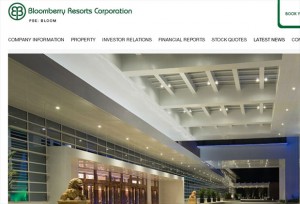Bloomberry eyes another Solaire expansion, investment in Japan
MANILA, Philippines— Integrated resort operator Bloomberry Resorts Corp. is planning a new phase of expansion for Solaire Resort & Casino alongside efforts to set up shop in new offshore markets like Japan.
In an annual report to stockholders on Thursday, Bloomberry official Thomas Arasi said the new phase of expansion would include the construction of three new hotel towers with 1,500 additional guest rooms, a 15,000-seater events area and 100,000 additional square meters of space for retail and meetings, incentives, conferencing and exhibitions (MICE) and about 35 new food and beverage outlets. This will also expand Solaire’s gaming tables to 650 from 360 (after the completion of phase 1A ) while electronic gaming machines will increase to 3,000 from 1,711.
“Once this expansion has been completed, Solaire will rank among the largest and most comprehensive integrated resorts in the world,” Arasi said.
Bloomberry chairman Enrique Razon told reporters after the stockholders meeting that the phase 2 expansion of Solaire would be bigger than phase 1 and phase 1A but the timing of construction would depend on market demand.
On Bloomberry’s aspiration to expand to offshore markets, Razon said the group has started talks with potential Japanese partners to bid for a gaming license in Japan after the passage of an enabling law on gaming in this wealthy Asian nation.
Meanwhile, the company’s subsidiary Bloomberry Resorts and Hotels Inc. filed last June 4 a petition at the Supreme Court questioning the validity of the Bureau of Internal Revenue’s revenue memorandum circular (No. 33-2013) imposing income tax on licensees of the Philippine Amusement and Gaming Corp.
To recall, Bloomberry and other licensees have struck a deal with Pagcor to cut license fees by 10-percent of gross gaming revenues to neutralize the burden arising from the BIR’s new rule, which subjected the licensees to the regular 30-percent corporate income tax in lieu of the all-encompassing 5-percent franchise tax on gross gaming revenues that the government earlier committed to.
However, the private licensees see the 10-percentage license fee reduction as but a “temporary measure” to address the unilateral BIR action. The parties agree to revert to the original license fee structure under the provisional licenses in the event the BIR action is permanently restrained, corrected or withdrawn.

